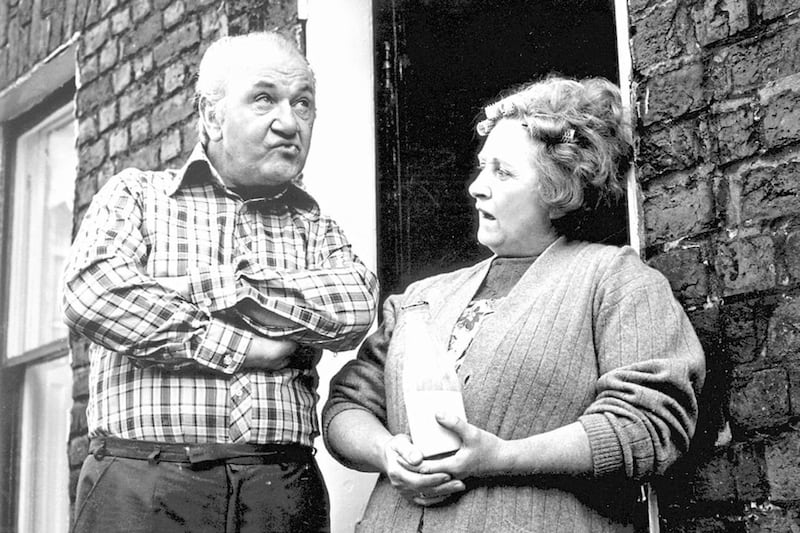Athbhliain faoi mhaise daoibh and welcome to 2024. Over 500 years ago, the French astrologer and physician. Michel de Nostredame, better known as Nostradamus, published his book Les Prophéties. Some claim over 70 per cent of his prophecies came to fruition.
Over the holiday period, I looked at what he had to say about 2024 and to be frank, it makes for bleak reading.
As if we didn’t have enough rain in 2023, Nostradamus says “the earth will grow more parched” (Sammy Wilson take note) and “there will be great floods”. He went on to predict there would be a “pestiferous wave” which would lead to “starvation” and the “destruction of agriculture” (not dissimilar to Tory government policies).
Going further, he pointed to a major sea conflict with the “red adversary”, which is assumed to be communist China.
In truth, many seasoned geo-political observers do talk about the potential of war - trade or military - with China over Taiwan.
Two further outliers from Nostradamus are believed to be references to a turbulent time for King Charles III (with Harry for a son, that’s perhaps not altogether unforeseeable) and the death of the Pope.
The Irish saints and seers, Malachi and Columcille, were also bleak in their outlooks for this 21st century, especially for the impact on the environment, over population and upheaval in climatic changes.
Closer in time, the comedian and singer, the late James Young, in the 1970s and 1980s wrote a series of parodies poking fun at the Troubles and divisions within Northern Ireland. My family used to keep many of his records. At times the contents were quite prescient.
The lyrics in one song are about “Ireland being heaven” in - wait for it... - “1987”. Written in 1973, the writer obviously thought the Troubles couldn’t last beyond 1987. How wrong he was...
The lyrics suggested one could go and watch cricket in Croke Park and that the “great Linfield Blues” were excelling at hurling. Statues of Brian Faulkner and Terence ‘O Neill would stand on the remnants of Nelson’s Pillar and the Falls Road would be renamed Paisley Parade
Rather amusingly the song proclaims this new age of accommodation was achieved because both communities are “all ecumenical now”.
This imagined 1987 Ireland was built on compromise and was very different to the bloody conflict beamed to global audiences in 1973.
The lyrics suggested one could go and watch cricket in Croke Park and that the “great Linfield Blues” were excelling at hurling. Statues of Brian Faulkner and Terence O’Neill would stand on the remnants of Nelson’s Pillar and the Falls Road would be renamed Paisley Parade.
In another Young sketch, a Belfast Orangeman has an accident, dies and awakes in Heaven’s waiting room. At the pearly gates, he is ushered through a doorway to a place which looks familiar but at the same time not.
It’s Belfast, 2001. Shell-shocked, the recently deceased thinks he has gone to Hell because they are building a Catholic Church on Sandy Row, the Pope is running Stormont and Paisley is cleaning the steps. To make matters even more hellish,“all the Fenians had jobs in high places” whilst “all the Prods were queuing for soup”.
Some loyalists haven’t left 1971 and for them, equality and egalitarianism has turned their Orange nirvana into a hellish nightmare
The saintly guide reminds the Orangeman that this new Belfast was for some their idea of heaven yet for others like him, it seemed like Hell.
Belfast 2024 is very different to the Belfast of the 1970s or indeed 2001 - even if the existence of peace walls stubbornly marks centuries of entrenched sectarianism.
Some loyalists haven’t left 1971 and for them, equality and egalitarianism has turned their Orange nirvana into a hellish nightmare.
In 1971, neither the Catholic/Protestant, nationalist/unionist populations could have imagined a string of nationalist lord mayors of Belfast, let alone conceive the notion of a Catholic serving as First Minister at Stormont.
Linfield may not yet be playing hurling but there is a thriving GAA community in east Belfast. There are no unionist statues on O’Connell Street but the bust of the late former leader of the Ulster Unionist Party, the Nobel laureate David Trimble, proudly sits on a plinth in Dáil Éireann.
Not even Nostradamus could not have predicted so much change - and things can only get better.










